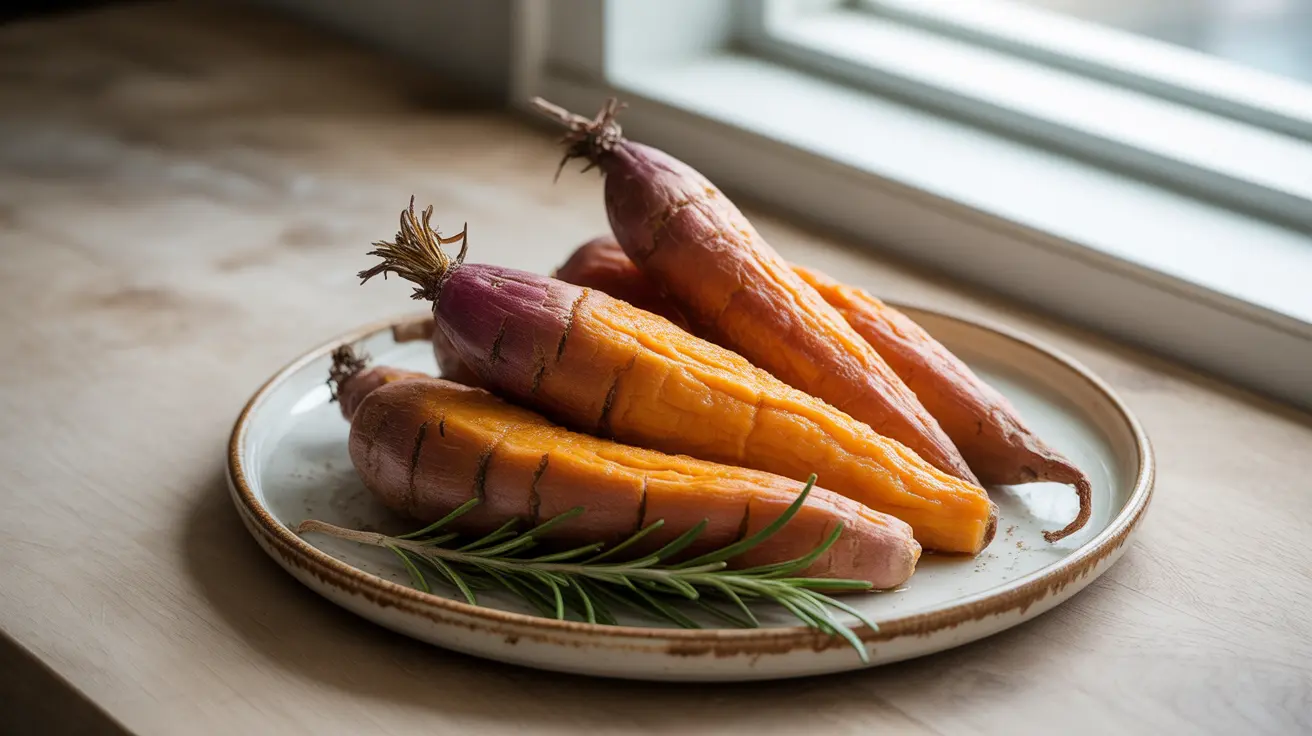Yams are nutrient-dense root vegetables that have been a staple food in many cultures for centuries. These versatile tubers pack an impressive array of vitamins, minerals, and beneficial compounds that can significantly contribute to your overall health and well-being. Understanding yam nutrition facts can help you make informed decisions about incorporating this wholesome food into your diet.
Whether you're looking to boost your immune system, support heart health, or simply add more nutritious options to your meals, yams offer a wealth of health benefits worth exploring. Let's dive into the comprehensive nutritional profile of yams and discover why they deserve a place on your plate.
Essential Nutrients in Yams
Yams are powerhouses of nutrition, containing various essential nutrients that support multiple bodily functions. A single cup (136g) of cooked yams provides:
- Fiber: 5.3 grams
- Protein: 2.3 grams
- Vitamin C: 20% of Daily Value (DV)
- Vitamin B6: 16% of DV
- Potassium: 19% of DV
- Manganese: 22% of DV
- Copper: 23% of DV
These nutrients work together to support various aspects of health, from energy production to immune function. The high fiber content aids digestion and helps maintain steady blood sugar levels.
Yams vs. Sweet Potatoes: Understanding the Difference
Despite common confusion, yams and sweet potatoes are distinctly different vegetables. Yams typically have a rougher, bark-like skin and starchier, drier flesh compared to sweet potatoes. From a nutritional standpoint, yams contain:
- Higher starch content
- Lower natural sugar levels
- More fiber per serving
- Different vitamin and mineral profiles
While both vegetables are nutritious, yams tend to have a more neutral flavor profile and are often used differently in cooking applications.
Health Benefits of Yams
Heart Health Support
The potassium content in yams plays a crucial role in maintaining healthy blood pressure levels. Additionally, the fiber content may help manage cholesterol levels, contributing to overall cardiovascular health.
Bone and Immune System Support
Yams provide essential minerals like manganese and copper, which are vital for bone health. The vitamin C content supports immune system function and helps protect cells from oxidative stress.
Blood Sugar Management
The complex carbohydrates and fiber in yams are digested slowly, helping to maintain steady blood sugar levels. This makes them a suitable option for people managing their blood glucose.
Storage and Preparation Tips
To maximize the nutritional benefits of yams, proper storage and preparation are essential:
- Store in a cool, dark place (not the refrigerator)
- Keep away from direct sunlight
- Use within 1-2 weeks for best quality
- Clean thoroughly before cooking
- Cook until tender but not overcooked to preserve nutrients
Frequently Asked Questions
What are the key nutritional benefits of eating yams?
Yams are rich in fiber, vitamins (especially B6 and C), and minerals like potassium, manganese, and copper. They provide complex carbohydrates for sustained energy and contain antioxidants that support overall health.
How do yams differ from sweet potatoes in terms of nutrition and taste?
Yams have a starchier, drier texture and less natural sweetness compared to sweet potatoes. They contain more fiber and less sugar, with a different nutrient profile that includes higher amounts of certain minerals.
Can yams help with heart health and cholesterol management?
Yes, yams can support heart health through their potassium content, which helps regulate blood pressure, and their fiber content, which may help manage cholesterol levels.
What vitamins and minerals in yams support bone and immune health?
Yams contain manganese and copper for bone health, while their vitamin C content supports immune function. They also provide vitamin B6, which plays a role in immune system responses.
How should I prepare and store yams to maintain their nutritional value?
Store yams in a cool, dark place and use within two weeks. When cooking, clean thoroughly and avoid overcooking to preserve nutrients. Methods like baking, boiling, or steaming help maintain their nutritional benefits.




